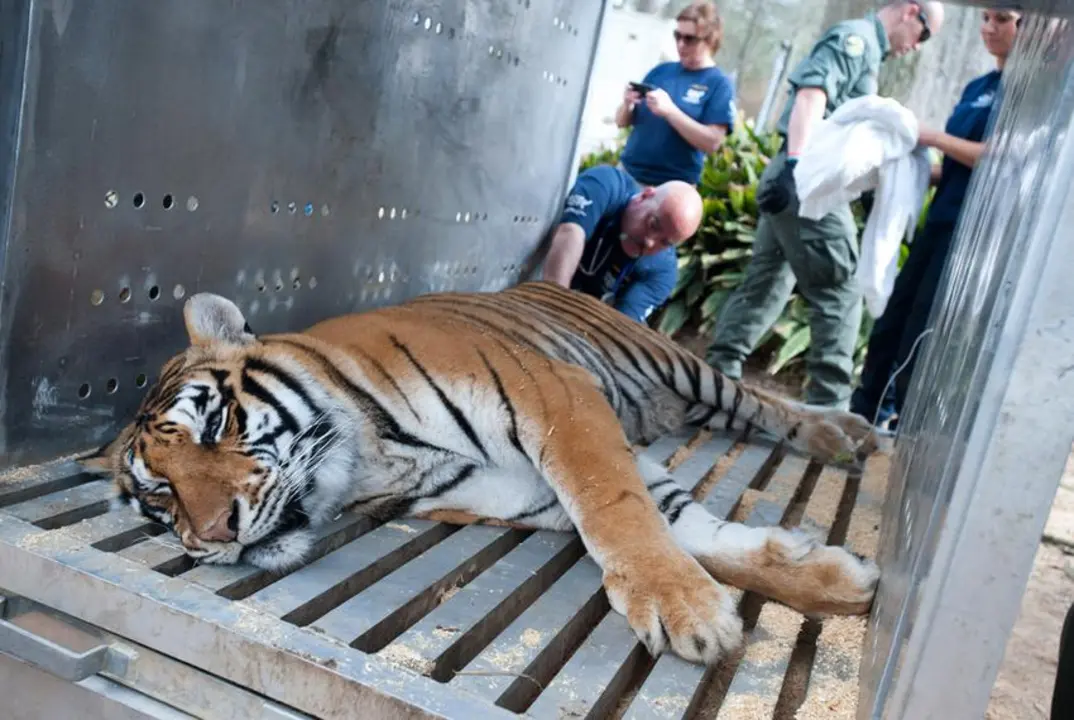Examining the Dangers of Keeping Exotic Pets: A Look at High-Profile Animal Attacks
Exotic animals can be beautiful, exciting, and captivating, making them desirable as pets. Unfortunately, they can also be dangerous, and even deadly, as a few high-profile cases have shown. From a Bengal tiger in Texas to a chimpanzee in Connecticut, these animals have attacked, maimed, and even killed their owners and unsuspecting bystanders.
In May 2001, a Bengal tiger escaped from its owner’s home in Texas and attacked a nine-year-old boy. The animal had been declawed and kept as a pet. After the incident, the state of Texas passed a law banning the ownership of large cats. In Connecticut, a 200-pound chimpanzee named Travis attacked a woman, leaving her with serious injuries. The chimpanzee was owned by an animal trainer and was eventually shot and killed by police.
In April 2013, a woman in Oklahoma was killed by a cougar she had kept as a pet. The animal was kept in a cage in her backyard, but was allowed to roam freely. The cougar, which weighed over 100 pounds, attacked her without warning and eventually died of dehydration in a tree. In June 2011, a woman in Arizona was attacked by a tiger she kept as a pet. The animal had been declawed and kept in a cage in her backyard. The woman was seriously injured and the tiger was later euthanized.
While exotic animals can be fascinating and entertaining, they can also be dangerous. These high-profile cases demonstrate the risks involved in keeping exotic animals as pets. Owners must be aware of the potential dangers and take appropriate precautions to protect themselves and others from harm.
The Unforeseen Consequences of Keeping Wild Animals as Pets: A Review of Exotic Pet Attacks
The trend of keeping exotic animals as pets has been growing in recent years. While it may seem like a fun and unique activity, there are some unforeseen consequences that come with it. In some cases, exotic pet owners have been attacked by their pets, resulting in serious injury and even death.
When an exotic animal is kept as a pet, it is often taken out of its natural environment and placed in a new, unfamiliar one. In addition, these animals may not receive the proper medical care and nutrition they need, making them more prone to illness and aggression. This, combined with a lack of understanding of the animal’s behavior, can lead to dangerous situations when the animal is not properly cared for.
There have been several reported cases of people being attacked by their exotic pets. In one case, a woman in Florida was attacked by her pet macaw. The bird had grown increasingly aggressive towards her and other people in the household, leading to the attack. In another case, a man in California was attacked by his pet fox. The fox had become increasingly aggressive, and the man was bitten multiple times before the animal was removed from the home.
While these cases are rare, they are a good reminder of the risks associated with keeping wild animals as pets. It is important for pet owners to be aware of the potential hazards and take steps to ensure the safety of everyone involved. This includes researching the animal’s needs, providing proper nutrition and medical care, and understanding the animal’s behavior.
Exotic pet owners should also be aware of the legal implications of owning an exotic animal. In some states, it is illegal to own certain types of animals, and there may be restrictions on where they can be kept. Additionally, it is important to be aware of the potential for the animal to escape and cause harm to people and other animals.
Keeping exotic animals as pets can be a fun and unique experience, but it is important to be aware of the potential dangers. Proper research, care, and understanding of the animal’s behavior is essential to ensuring everyone’s safety. Exotic pet owners should be aware of the potential for attacks and take steps to reduce the risk.

